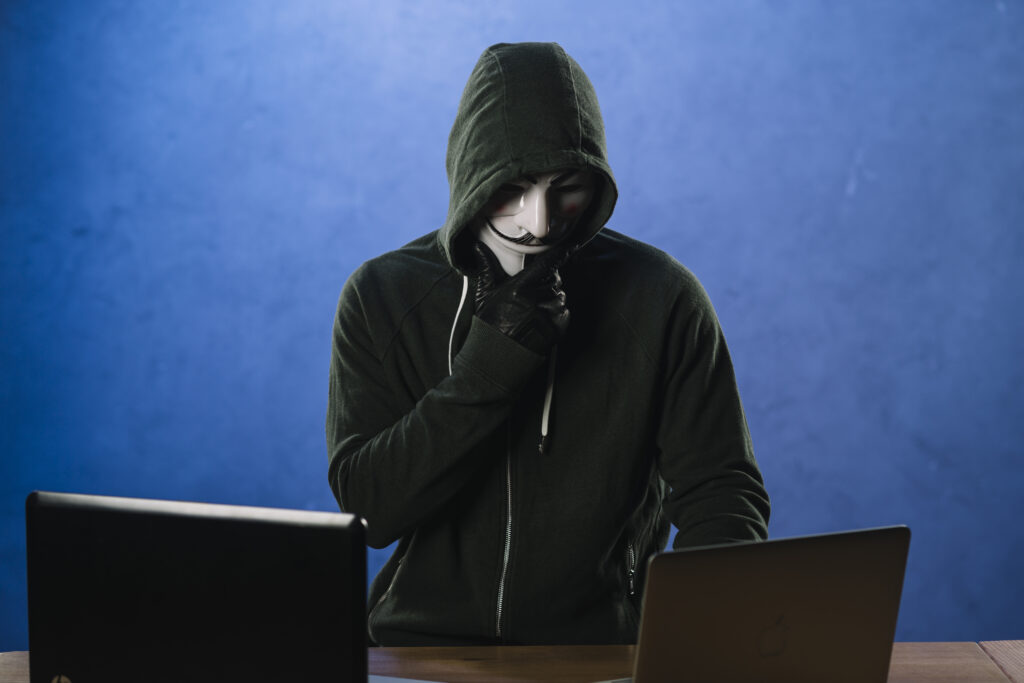The hacktivist collective known as Anonymous has long occupied a unique space in the digital landscape, generating fervent debates about their ethical standing and overall impact. Are they digital heroes standing up against oppressive systems, or are they malicious actors causing chaos and harm? The question of whether Anonymous is good or bad remains elusive, as their actions straddle the blurred line between noble intentions and potential collateral damage.

The Yin and Yang of Hacktivism
Anonymous’s activities have spanned a wide spectrum, from supporting the Arab Spring uprisings to exposing corporate corruption. Their arsenal includes distributed denial-of-service (DDoS) attacks, information leaks, and digital pranks. This duality has fueled conflicting opinions on their morality.
The Good: Digital Robin Hoods?
Supporters of Anonymous view the collective as modern-day vigilantes, using their skills to champion social justice causes. The group’s involvement in the Arab Spring, aiding protesters by bypassing government-imposed internet censorship, is often cited as a positive example of their impact. Their campaigns against oppressive regimes and corporate greed have exposed hidden truths and encouraged conversations on transparency and accountability.
In an era of increasingly sophisticated cybercrime, some see Anonymous as a necessary counterforce that exposes vulnerabilities, prompting organizations and governments to enhance their security measures. Their fight against online extremism, as seen with their campaigns against ISIS propaganda, underscores their potential for combating real-world threats.
The Bad: Crossing Ethical Boundaries?
Critics argue that Anonymous’s actions sometimes blur the line between hacktivism and cybercrime. Their DDoS attacks, while often targeting deserving entities, can disrupt essential digital services, causing inconvenience to innocent bystanders. These attacks can have unintended consequences, leading to potential economic losses and public frustration.
Furthermore, the lack of a centralized structure within Anonymous can also lead to rogue actions by individuals claiming affiliation. The group’s perceived lack of accountability has resulted in instances where operations deviate from their intended goals, potentially harming innocent individuals or organizations.
Ethical Dilemmas and Collateral Damage
The ethical landscape surrounding Anonymous is fraught with dilemmas. While their intentions to expose corruption and advocate for social justice are commendable, their methods can sometimes lead to unintended collateral damage. This has prompted discussions about the limits of hacktivism and the responsibility of activists to weigh potential consequences against their objectives.
In some cases, Anonymous’s operations have inadvertently compromised personal information, such as releasing sensitive data without proper context. This raises concerns about the potential violation of privacy and the impact on individuals who might be unjustly affected by the group’s actions.
The Changing Digital Landscape
Anonymous’s visibility has evolved as technology advances and law enforcement agencies adapt. Their activities once enjoyed relative obscurity, but as cybersecurity measures improve, identifying and apprehending members has become more feasible. This has led to a shift in the collective’s tactics and visibility, contributing to ongoing debates about their relevance and potential for both positive and negative outcomes.
Navigating a Gray Area
The question of whether Anonymous is good or bad cannot be answered definitively. Their actions showcase a nuanced mixture of intentions, methods, and consequences that defy simplistic categorization. The absence of a clear moral stance reflects the complex nature of hacktivism in the digital age, where lines between right and wrong often blur.
The continued evolution of Anonymous underscores the importance of ethical considerations in the realm of digital activism. Balancing the desire for social change with the need to avoid causing unintended harm requires a thoughtful approach to using digital tools for advocacy.
Conclusion
The debate surrounding the moral standing of Anonymous remains as enigmatic as the group itself. Their actions have sparked discussions on the ethics of hacktivism, the potential for collateral damage, and the fine line between heroism and villainy in the digital domain.
As technology continues to shape our world, the ethical considerations surrounding hacktivism, cybersecurity, and the boundaries of online activism become more pronounced. Ultimately, the answer to whether Anonymous is good or bad lies in the broader context of the complex interplay between their intentions, methods, and the consequences that ripple through the digital landscape.